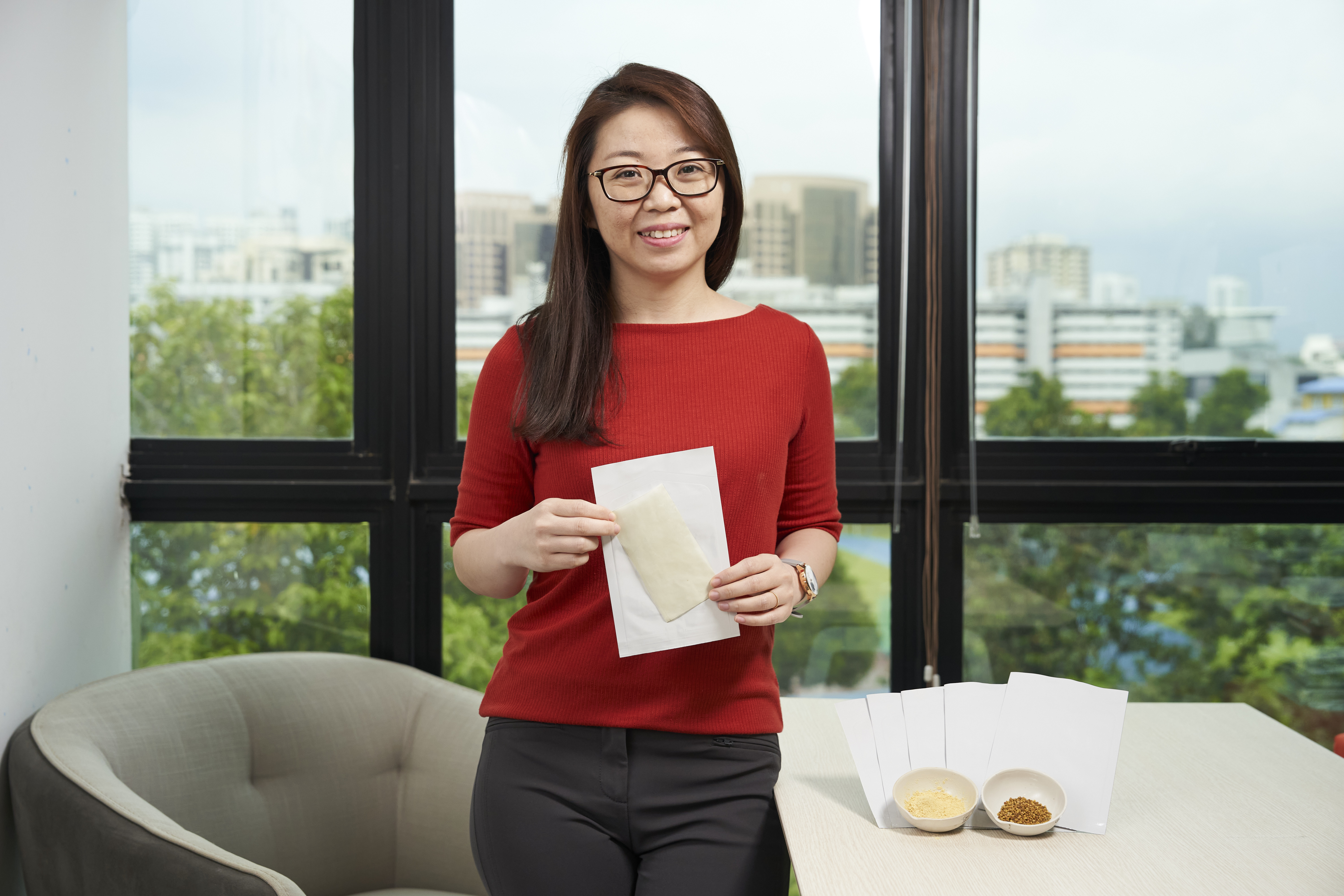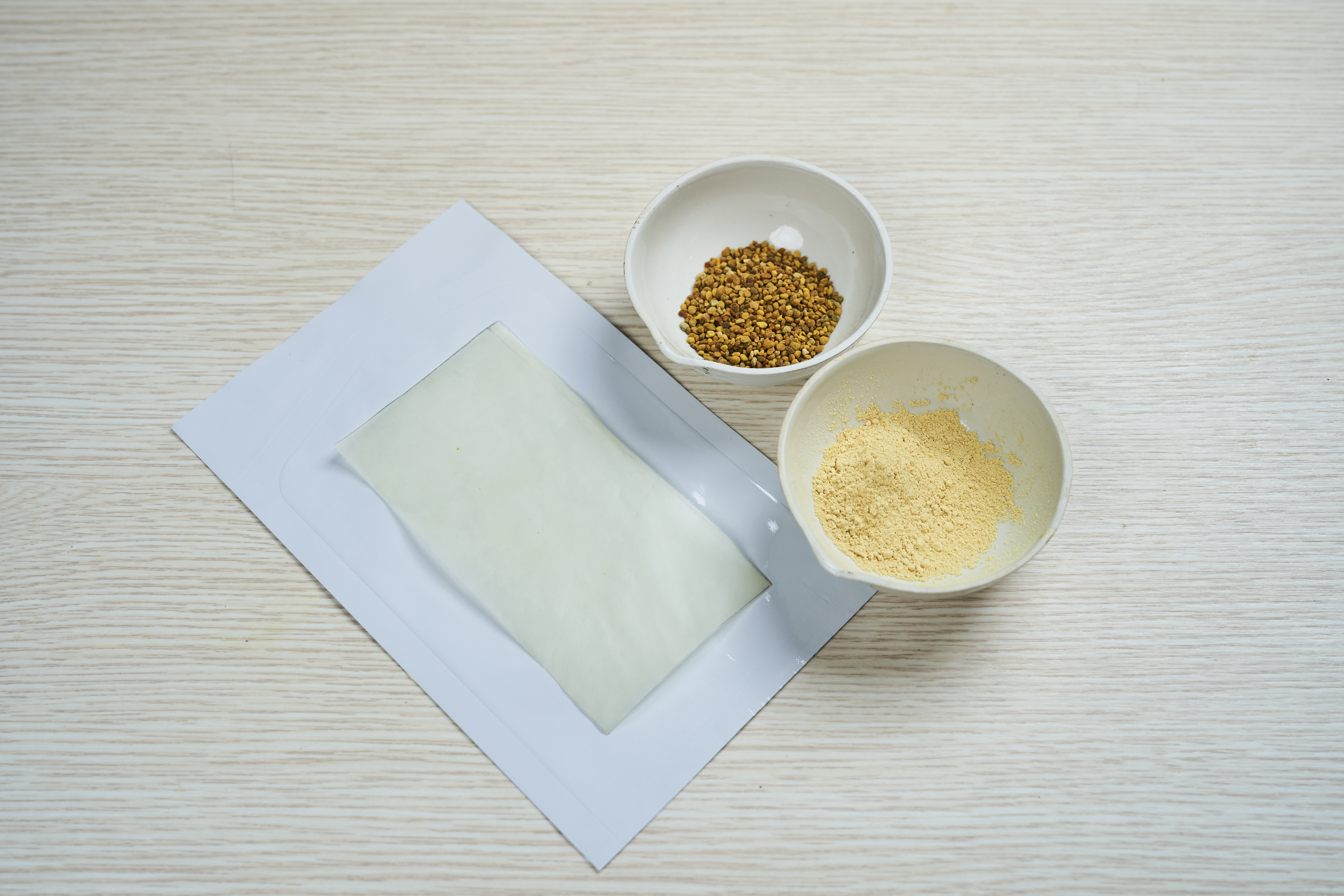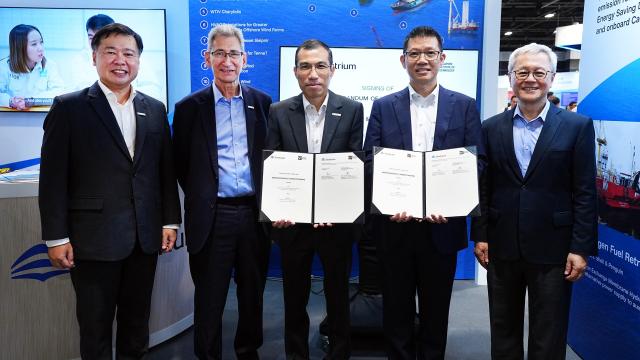Using pollen grains, the Singapore Institute of Technology (SIT) and local startup Sporogenics teamed up to develop a hydrogel film with superior properties to prevent post-surgery complications.

Associate Professor Cheow Wean Sin (SIT Photo: Keng Photography/Tan Eng Keng)
The human abdomen is lined with a thin, continuous membrane layer called the peritoneum, which covers and protects the organs from friction against each other and the walls of the abdominal and pelvic regions as they move around. Friction is reduced as the peritoneal cavity — the space between the organs and the inner abdominal and pelvic walls — contains a small amount of fluid.
If the peritoneal cavity is damaged, the organs could stick to one another or to the abdominal or pelvic walls, limiting their movement. Known as peritoneal adhesion, this condition is often a result of an infection or trauma from gastrointestinal surgery.
A systematic review of studies has reported the incidence rate of peritoneal adhesion to be as high as 66 percent, indicating it to be a common post-surgery complication. Left unchecked, peritoneal adhesion can lead to serious conditions such as chronic pain, small bowel obstruction and even infertility.
“Addressing peritoneal adhesion is important as it is a major cause of morbidity and other complications. The cost of repeat hospital admissions or care due to peritoneal adhesion can compound and increase over the years,” explained Associate Professor Cheow Wean Sin from the Food, Chemical and Biotechnology Cluster at the Singapore Institute of Technology (SIT).
Realising the unmet needs of post-operative adhesion prevention, Sporogenics teamed up with A/Prof Cheow, who heads a research team in developing a pollen-based hydrogel film. Sporogenics, which is among the 20 accelerator companies from the MedTech Innovator Asia Pacific 2020 cohort, specialises in developing clinical solutions with nature-derived materials.
The hydrogel film aims to act as a membrane barrier against peritoneal adhesion and releases a treatment drug at the adhesion site. Fully biodegradable and biocompatible, the hydrogel film is composed of pollen grains, specifically sporopollenin from sunflowers.
Pollen grains are microscale particles housing the genetic materials of plants. As their walls have evolved to be able to withstand harsh environments, pollen grains are naturally more resilient to microbial attacks, prolonged dry conditions, oxidative free radicals and ultraviolet-induced damage.
“In addition to their large and renewable supply, pollen grains have attractive characteristics that make them excellent microcapsules for drug encapsulation and medical applications. For our hydrogel film, we have also removed the allergen material from the sporopollenin to render it non-allergenic,” described A/Prof Cheow.

The fully biodegradable and biocompatible pollen-based hydrogel film acts as a membrane barrier against peritoneal adhesion. (SIT Photo: Keng Photography/Tan Eng Keng)
While pharmaceutical drugs are available to treat peritoneal adhesion, inserting a physical barrier in the abdomen is more effective because it targets the site directly. This approach has become the mainstream treatment in healthcare globally, but current commercially available adhesion barriers have their shortcomings.
For example, one widely used barrier is brittle and easily torn before being deployed, but it becomes sticky once it comes into contact with a wet surgical tool. Another barrier is only approved for use in bloodless applications, like gynaecological surgeries, because it has a microporous film structure that leads to adhesion in blood-field applications.
“Through extensive research, we have formulated a flexible film with robust mechanical properties that can overcome the challenges of the adhesion barriers currently offered in the market now,” said A/Prof Cheow.
“Sporogenics has implanted our prototype in rat models to validate both its physical mode of action and adjuvant bioactive mechanism,” she remarked. “Within 21 days, we had observed no cytotoxicity and no adhesion in the animals after surgery. At present, we are pursuing larger-scale animal studies.”
These animal studies have also demonstrated the prototype to have higher hydrophilicity, flexibility and swelling capacity than the market’s current product leader. These advantageous in vitro properties indicate the hydrogel film to be more effective at preventing bacterial adhesion, more elastic during surgery for easier manipulation and faster at absorbing water to coagulate and minimise internal bleeding.
As sporopollenin is inherently anti-inflammatory, an anti-inflammatory drug is not required to be first encapsulated within the hydrogel. Additionally, the hydrogel film exhibits slower disintegration compared to the market’s product leader.
The research project is co-funded by Sporogenics and has received funding from SIT’s Ignition Grant, which supports early-stage research in collaboration with the industry. As Singapore’s University of Applied Learning, SIT emphasises applied research and innovation through strategic partnerships with companies.
The hydrogel film is targeted at addressing peritoneal adhesion, but A/Prof Cheow believes the technology, biomaterials and research driving its development could benefit other clinical uses. She cited hemostatics, soft tissue regeneration and alternative treatment for chemotherapy as potential application areas.
Although animal studies are still underway, Sporogenics has initiated clinical trials for the hydrogel film in the first half of 2023. If the trials are successful, the team will apply for regulatory approvals in 2024 and move toward commercialising the hydrogel film in 2025. Founder & Partner of Sporogenics Dr Ng Wei Beng hopes to introduce the hydrogel film to the global market by 2026.
“As there is a larger market overseas, we aim to clear regulatory approvals in the United States and Europe before registering the products in regional markets. By obtaining the US Food and Drug Administration approval and CE mark first, we can expedite commercial use,” Dr Ng added.
For more information on this research, get in touch with principal investigator A/Prof Cheow here and Sporogenics here.
Copyright: Asian Scientist Magazine; Photos: Singapore Institute of Technology.
This article first appeared in Asian Scientist Magazine online.



